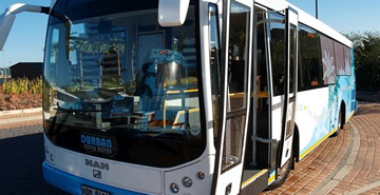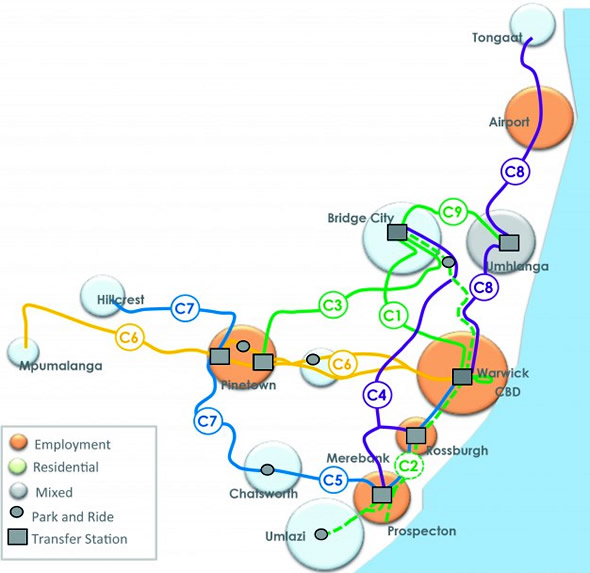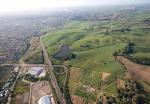R22bn Go Durban project forges ahead despite complaints
 The construction of the first phase of the multibillion-rand integrated rapid public transport network system, known as Go Durban, is set to continue despite complaints from some businesses and landowners
The construction of the first phase of the multibillion-rand integrated rapid public transport network system, known as Go Durban, is set to continue despite complaints from some businesses and landowners
The construction of the first phase of the multibillion-rand integrated rapid public transport network system, known as Go Durban, is set to continue despite complaints from some businesses and landowners
The eThekwini municipality said last week that it would forge ahead with the R22bn project which aims to fully integrate trains, buses and taxis across the city and surrounding areas, complete with train stations, bus shelters, dedicated bus and taxi lanes and pedestrian walkways on feeder routes.
Durban is well behind cities such as Johannesburg, Cape Town and Pretoria, and the Ekurhuleni metro, in starting the rapid transportation network. But the city said it was doing its best to catch up and would not allow further delays.
Research quoted by the World Resources Institute shows that bus rapid transport systems can reduce travel time by millions of hours for commuters worldwide. Commuters in Johannesburg are expected save an estimated 73-million hours between 2007 and 2026 because of the rapid transport network there.

The first phase of the Go Durban project, which will cost about R10bn and run for 21 months, started in Pinetown at the beginning of last month. Its focus is on the Durban city centre, Pinetown, Bridge City, KwaMashu, Umhlanga, Umlazi and Isipingo. Some business and landowners, however, have complained that digging had taken place on their private properties without their consent or proper consultation.
But the city said yesterday that it had taken every precaution and had undertaken thorough consultation before work on the project commenced.
“There are other landowners in the area that are impacted and affected and we have gone through due process of notifying them by advertising in relevant media during the preliminary design process,” said Carlos Esteves, eThekwini’s deputy head of road system management.
“Public meetings were held as required before (the municipal) council approved the project. The process included the statutory consultation for EIA (environmental impact assessment) requirements and approval.
“When design was approaching finalisation, a special effort was embarked on to notify all affected parties. A public meeting was scheduled for 19 November 2013 at Lahee Park Sports Club.
“Notification of this meeting was advertised in the local press and via the local chamber of commerce and business associations. Printed invitations were also handdelivered at each property during the week 11 to 15 November 2013.”
Thami Manyathi, head of transport in the eThekwini municipality, told journalists yesterday his team would continue to engage with affected stakeholders to get their co-operation. These included the businesses and landowners that had complained. Expropriation would be a last resort.
“My team are trying to resolve that matter so that, if need be, we’ll amend the construction programme to allow for the expropriation process to be finalised and then complete the work.”


















